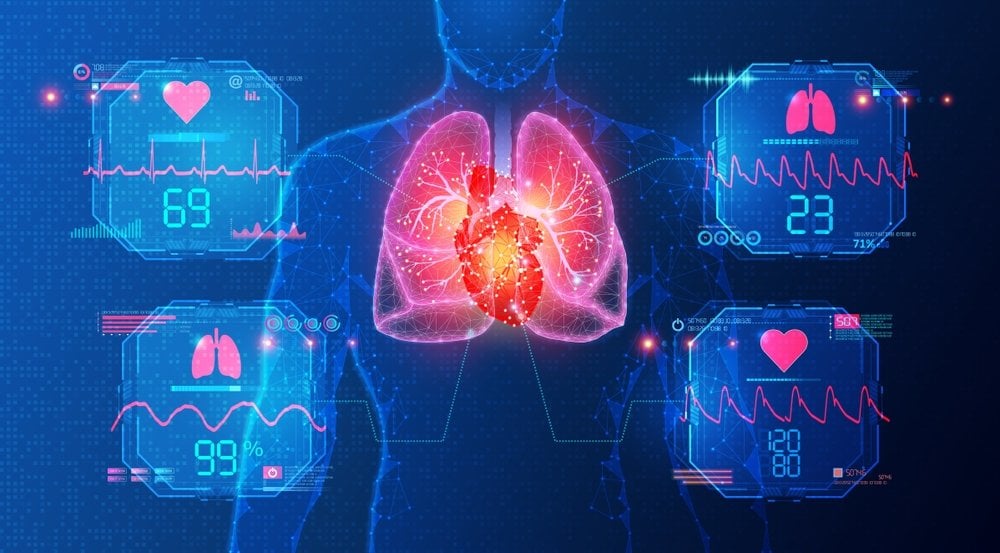When we think about the various technologies driving healthcare progress today—from novel medicines and medical devices, to innovative software applications and analytic techniques—computer memory is rarely the first thing that comes to mind. It usually whirs quietly in the background, hidden inside the connected devices and the data centers that increasingly power our healthcare systems.
In fact, memory hardware already plays a critical role in many of the most advanced healthcare technologies. Meanwhile, new techniques for information storage and retrieval will be essential for enabling the next wave of healthcare innovation, particularly as big data and artificial intelligence (AI) technologies become increasingly ubiquitous in healthcare.


“Healthcare has a deluge of data, and the data is very rich and complex and highly dimensional,” says Bambi DeLaRosa, Healthcare Artificial Intelligence Principal Investigator at Micron, one of the world’s largest memory chipmakers. “Memory is where the data lives, so you have to ensure that the memory is capable of handling the complexity.”
This complexity will only increase as AI-powered tools for medical diagnostics, clinical decision support, medical research, surgical robotics, and other uses come onto the market. All these various tools require massive datasets to power their algorithms. And that data needs to be stored cost-effectively and in a manner that allows for rapid retrieval. It’s a challenge that requires continuous memory hardware innovation.
“The specifications of what is needed for data movement and storage is different in all spaces,” observes DeLaRosa, who works in Micron’s Advanced Computing Solutions group, which conducts research to understand and develop hardware solutions across multiple industries. “Autonomous vehicles, for example, may have an entirely different set of specifications than healthcare.”

As part of their broader efforts to understand those specifications for the healthcare industry, Micron teamed up with the Knight Cancer Institute at Oregon Health & Science University (OHSU) to support cancer research. This includes a new initiative to develop personalized cancer treatments by applying AI to large patient datasets, according to Terry Lo, a strategic advisor for research technologies at the institute.

During a panel discussion at Techonomy NYC 2019, Lo said he’s working with Micron to develop the memory systems necessary for the use of AI in processing and analyzing those datasets. One key challenge is making sure the data can be analyzed fast enough to deliver results for cancer patients participating in clinical trials. Many of those patients have advanced cases and face terminal diagnoses, so they need results as fast as possible.
Micron has other healthcare partnerships too. In an interview at the 2018 Techonomy conference in Half Moon Bay, Micron’s president and CEO, Sanjay Mehrotra, described healthcare as a “passion” and a major focus of the firm, alluding to projects in radiology, pathology, and precision medicine.
But given all the industries in which memory matters, why such a strong focus on healthcare? “This is the area where perhaps there is the most urgent need…[for] AI algorithms to be applied to solve some of the biggest problems that have been left unsolved,” Mehrotra said in his opening keynote address at the Micron Insight ’18 Conference, a company event in October 2018.
In his talk, Mehrotra announced a $1 million grant through the Micron Foundation to support AI research. Healthcare is a major priority, as evidenced by an initial award of $200,000 to the Stanford Precision Health and Integrated Diagnostics Center to drive AI applications in precision health and integrated diagnostics.
The focus on health AI is certainly driven by business opportunities, too. The healthcare industry is already a huge and growing share of the global economy, and the AI wave will continue to cut across it, boosting memory requirements. Micron’s projects in the sector, including exploratory research and development initiatives, signal a clear intention to ride that wave and capture a share of the pie.
AI promises to transform healthcare in numerous ways, but the field of health AI is still in its infancy. Continued progress will require investments from many stakeholders, including technology firms, researchers, health care providers, clinicians, governments, and patients. Memory chipmakers have a vital role to play, and while they are often behind the scenes, their products and services are essential for health AI innovation.

















